Spain's bear population is growing, thanks to crucial conservation work.

TENT is working with Scottish landowners on a pilot river catchment restoration project, seeking to create a template investment model to deliver native tree planting and peatland restoration.
We aim to work with landowners in the Scottish Highlands to design a river catchment restoration project, linking native woodland with peatland restoration in an ecosystem approach to river health. The experimental project will help create a financial and ecological blueprint for river catchment restoration, helping landowners overcome financial barriers to launching nature recovery projects.
Scotland has lost 97% native woodland cover, which has impacted the health and connectivity of our native habitats. Driven by anthropogenic warming and woodland cover loss, average river temperature is rising significantly, exposing Atlantic salmon populations to thermal stress. Over a temperature threshold of 23 degrees, salmon’s normal biological processes like reproduction, development and metabolism begin to break down. Today, Scotland is facing a real possibility of local extinction of the Atlantic salmon: catches in the Scottish Highlands reached an all-time low in 2022, representing just 75% of the five-year average. Scottish salmon were recently declared ‘Endangered’ under the IUCN Red List. With problems at sea, the scientific community is understanding the problems faced by salmon upstream, with salmon now returning on their annual migrations to habitats with diminished riparian woodland cover with an altered hydrology due to the surrounding landscape-use.
Salmon are an indicator species for the declining health of the broader freshwater ecosystems they inhabit. Moreover, they are a pillar of Highland culture and local employment, and their local extinction threatens the region’s cultural heritage and employment landscape.
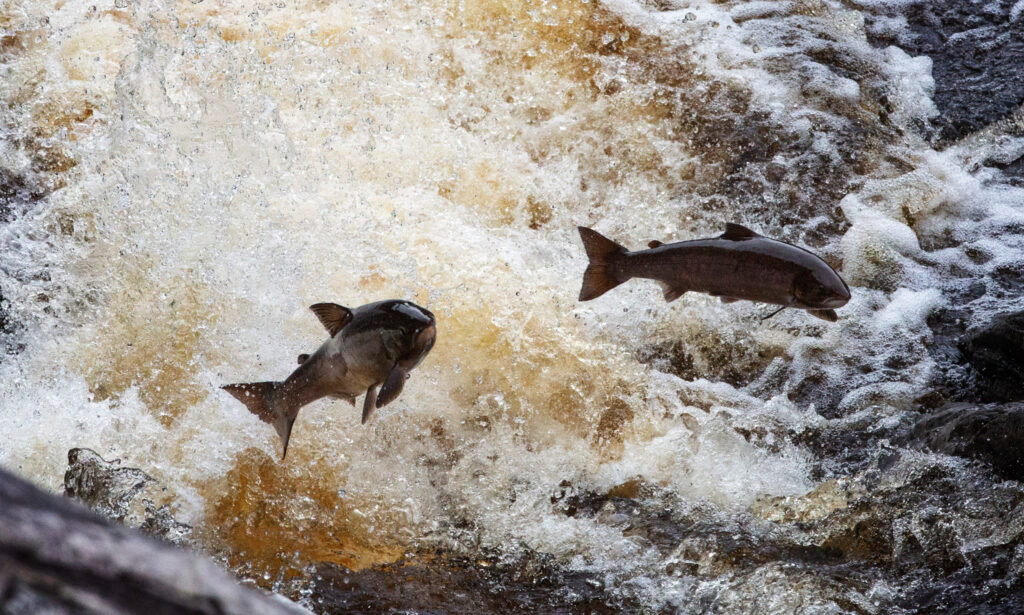
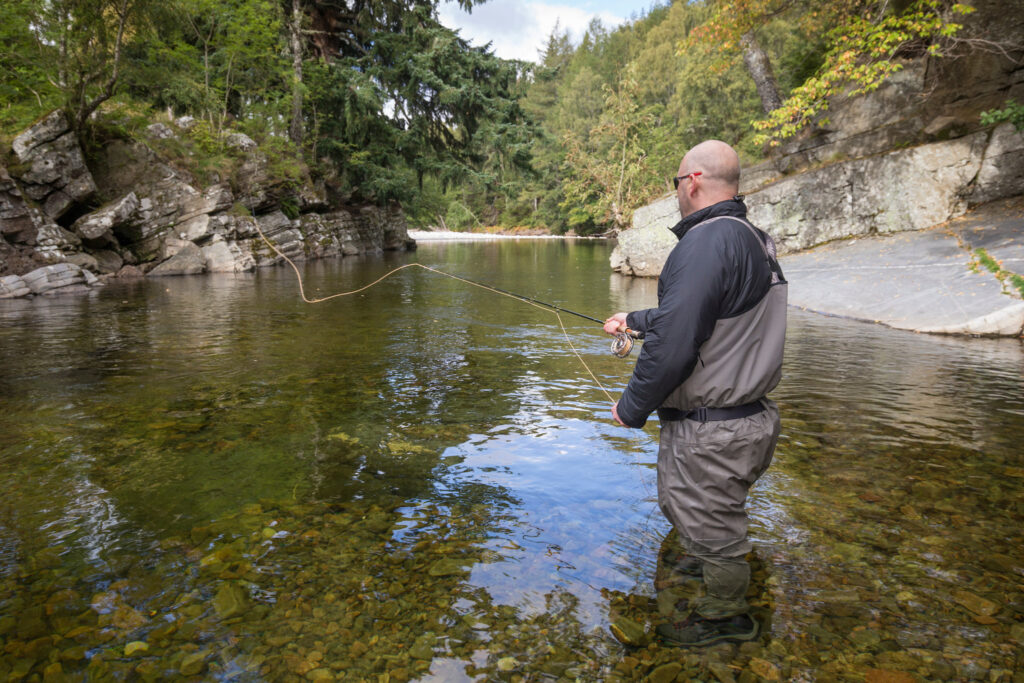
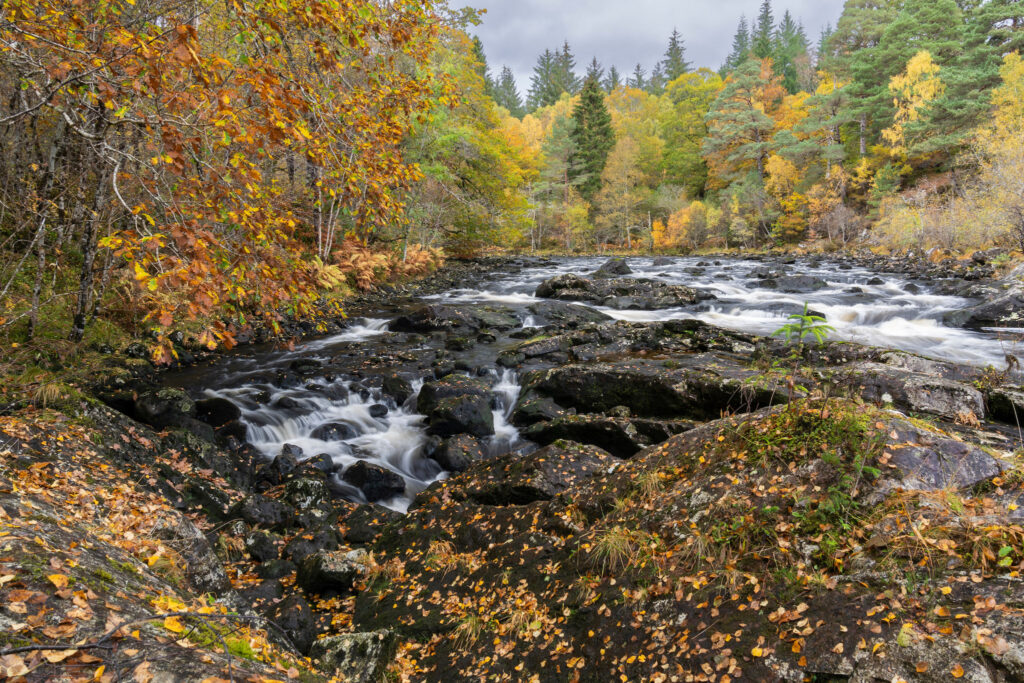
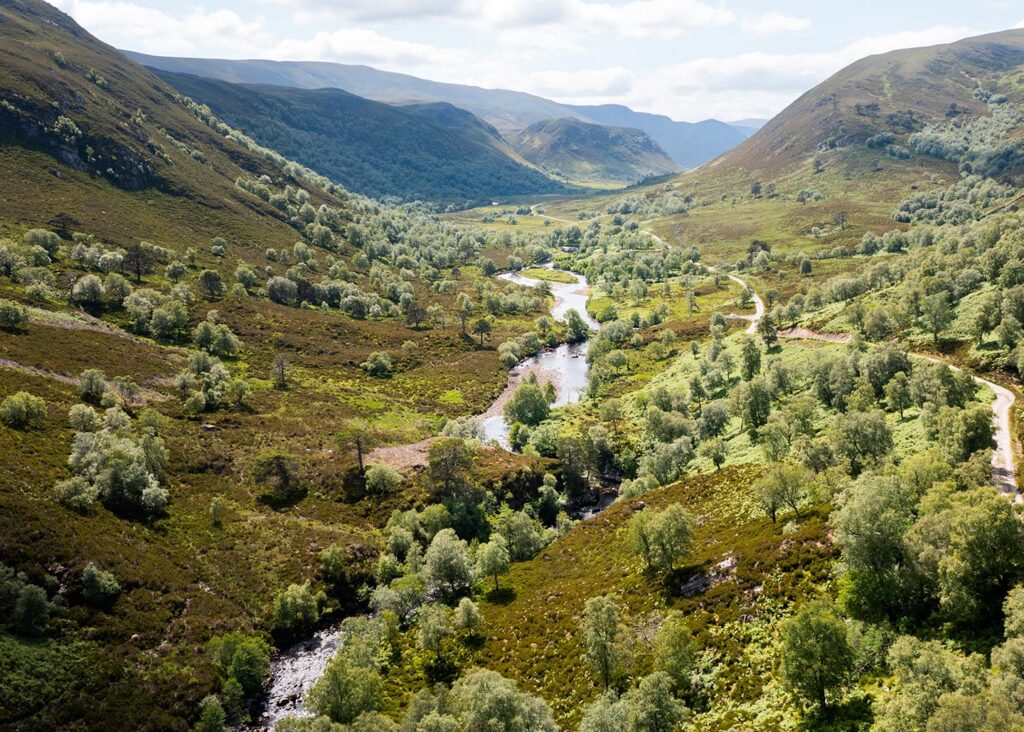
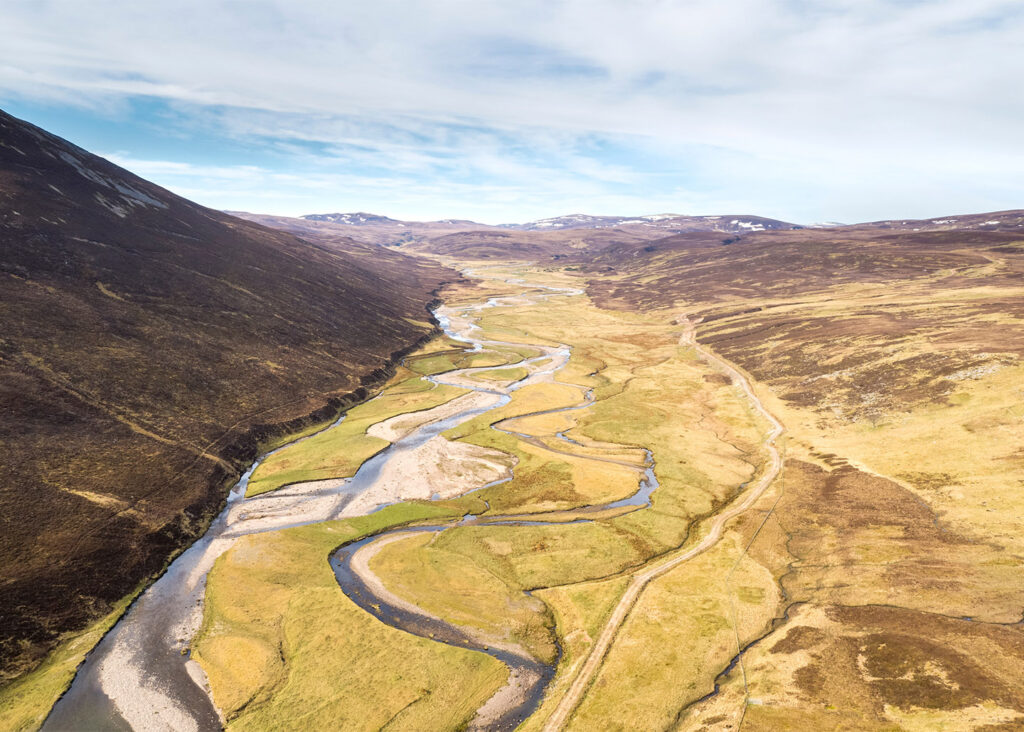
Restoring woodland and peatland is a nature-based solution that benefits freshwater and terrestrial biodiversity, local people, and climate resilience. However, financial barriers often prevent many landowners from launching or permitting such projects to take place. Successful private investment, through the sale of ecosystem services like carbon sequestration and biodiversity gain, is essential to fill funding gaps associated with current governmental and philanthropic funding sources. In fact, the Global Finance Institutes estimates a finance gap of £20 billion to meet Scottish Government’s nature recovery targets in the next decade. Without proven models for private financing of nature with local community benefit and involvement built in, there is a far lower chance of meeting Scotland’s ambition.
Our project seeks to establish a novel financial mechanism for delivering scalable riparian woodland creation schemes with peatland restoration as part of a ‘river catchment restoration pilot’.
The restoration of woodland on riverbanks is a proven method to restore the ecosystems of our rivers. Trees provide critical nursery grounds for young salmon; the tree cover will shade and cool the water; while the revegetation of the riverbanks restores natural hydrological flows and stores carbon, as well as providing habitat and ecological corridors for invertebrates, birds and mammals. The naturalisation of river channels can also significantly improve the instream habitat conditions for spawning salmon, invertebrates, and wading birds.
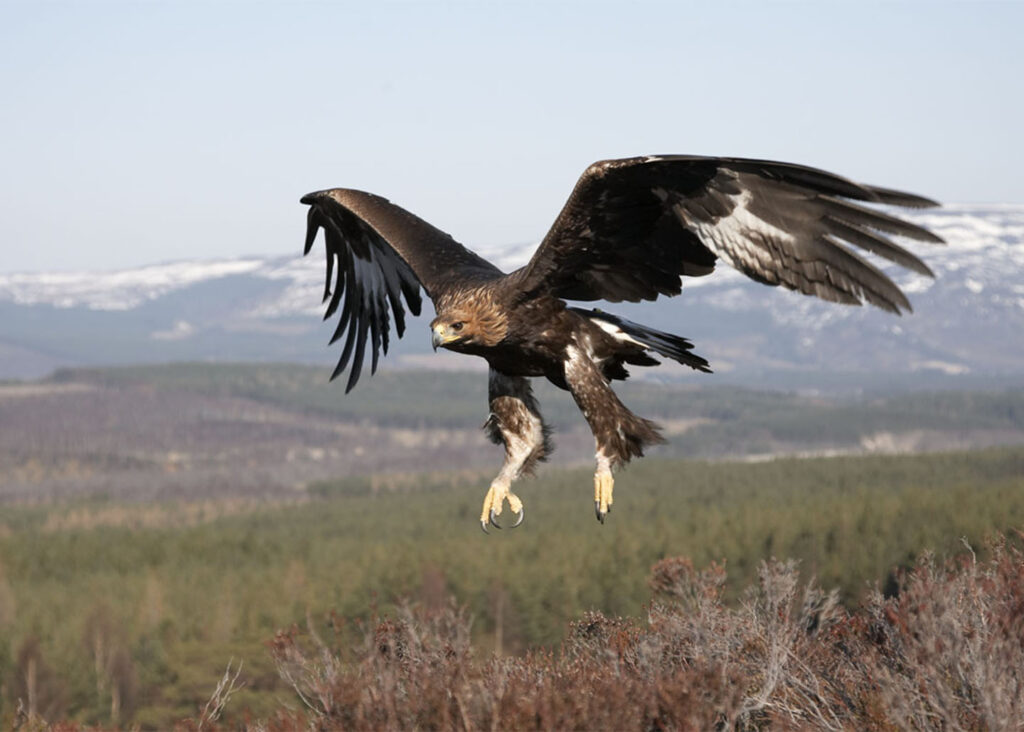
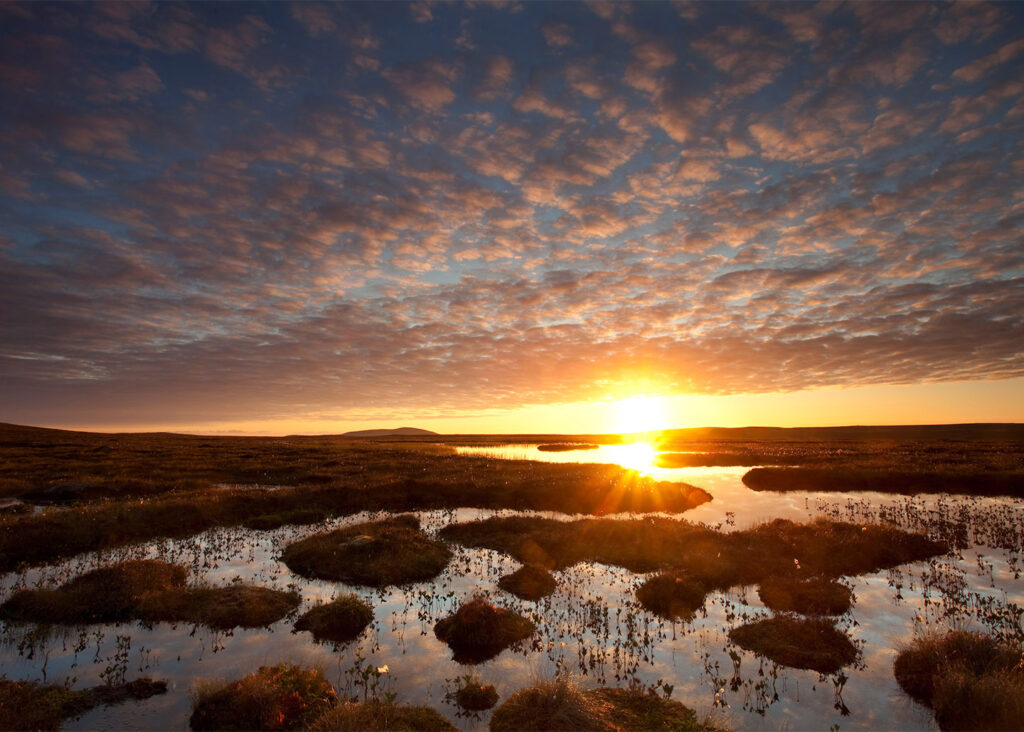
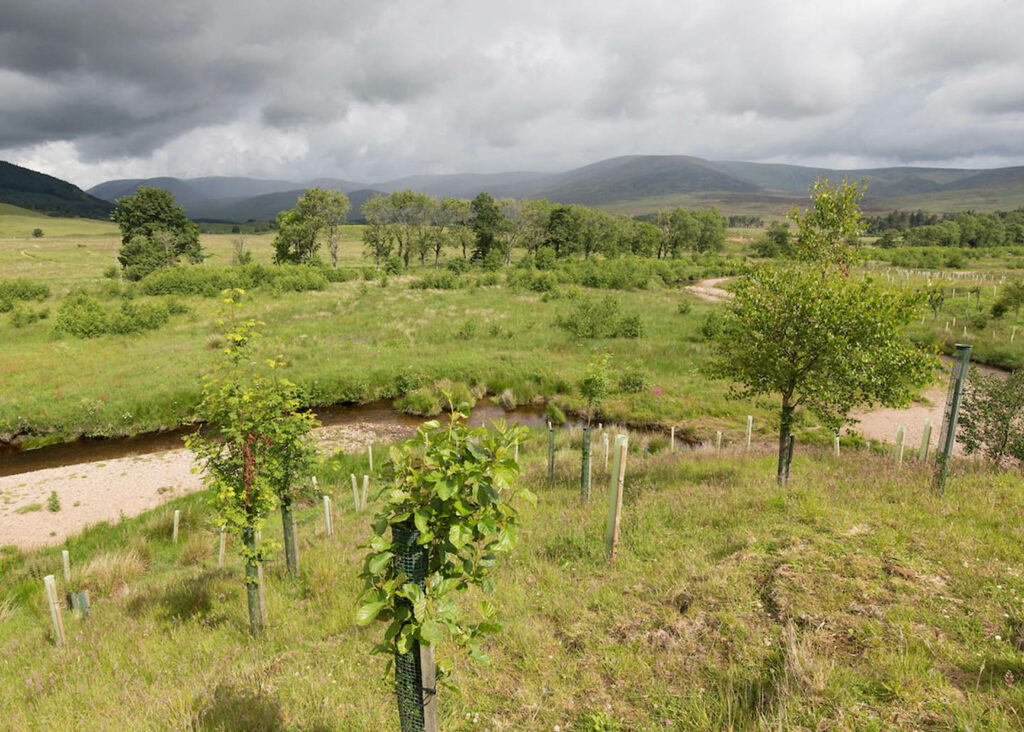
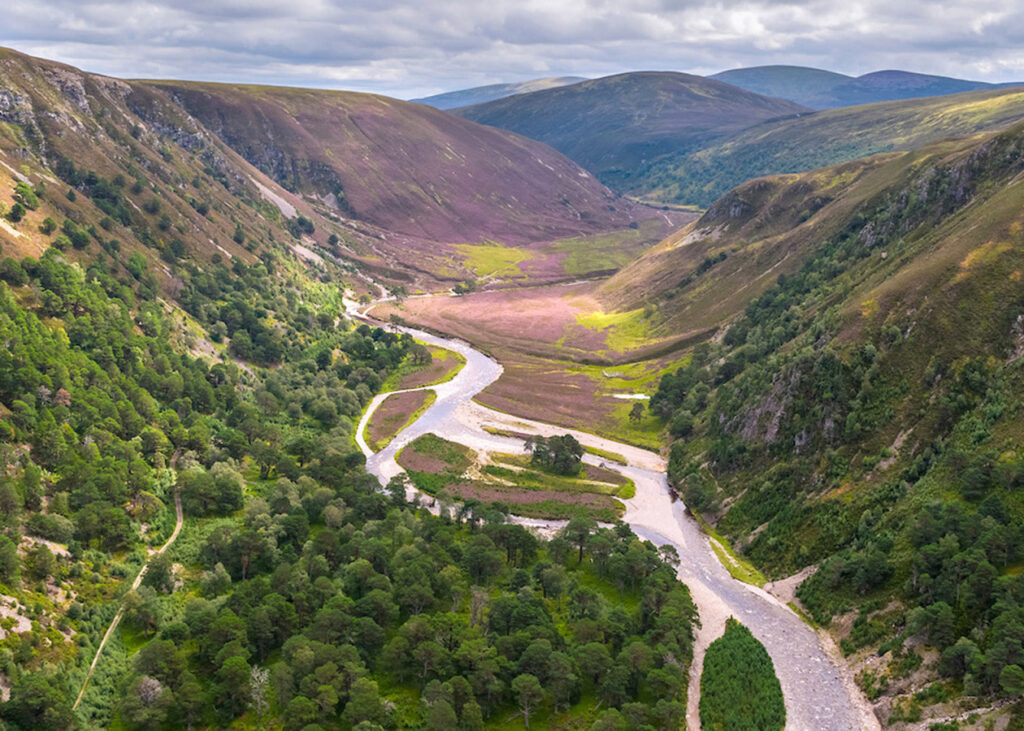
If successful, our lighthouse project will provide an open-source blueprint for financing and execution, to be shared and adopted by landowners and managers across the Kyle of Sutherland catchment area (incorporating the Carron, Shin, Evelix, Cassley and Oykel rivers and the whole of the North Ross Deer Management Group).
In creating a viable financial model, our project aims to demonstrate the shared benefits of nature recovery projects for those living in rural environments, in the form of improved ecosystem service provisioning, knowledge building, nature-based skills enhancement, community impact, and the generation of local employment for a just transition.
The implementation phase will generate employment for third party contractors engaged in tree planting and peatland restoration work. In the long-term, employment will be generated through biodiversity and carbon monitoring as part of our commitment to the Woodland Carbon Code and Peatland Code standards. Through our community outreach programmes we will facilitate local ecological knowledge building and improve literacy and engagement with nature restoration projects.
With financial support from The European Nature Trust, a new tree nursery is to be built in Ardgay to provide local provenance saplings for local tree planting projects. Initially there will be a role for a nursery manager and as this venture grows there will be the potential to expand, employing more assistants. It will also employ local volunteers as part of the project delivery, providing meaningful engagement in nature recovery projects.
In the long-term, our project aims to improve freshwater and terrestrial biodiversity, increase carbon sequestration, restore natural hydrologic flows and boost natural flood defences, while improving key salmon habitats. Ultimately, this project will help to overcome financial barriers associated with current governmental and philanthropic financing streams, and thus scale up nature recovery for the benefit of all.
For the design phase of this project, TENT is supported by a development grant from the Facility for Investment Ready Nature Solutions (FIRNS) programme, run by Nature Scot and the National Heritage Lottery Fund.
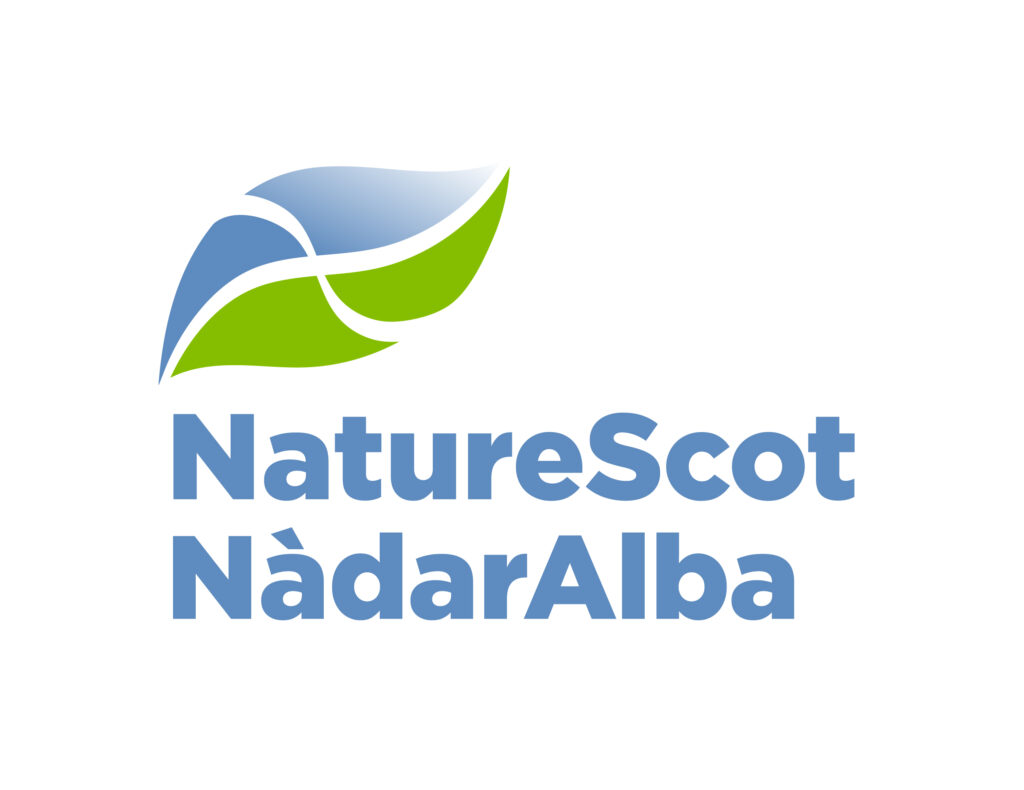

Spain's bear population is growing, thanks to crucial conservation work.
8 international journalists tell the story of Belizean conservation
A civilised nation, killing more than 70% of its wolves, flies in the face of science.

